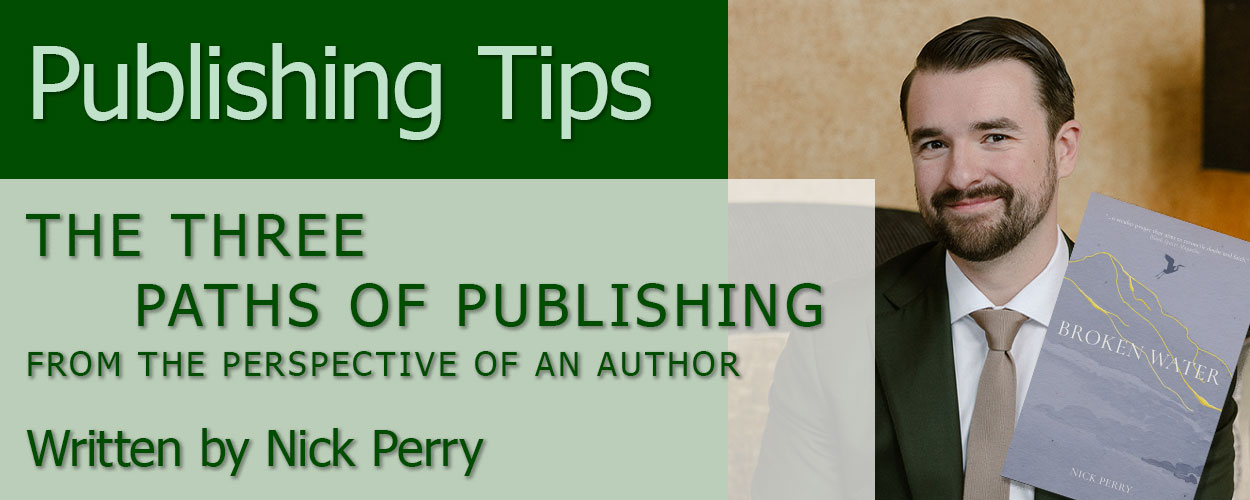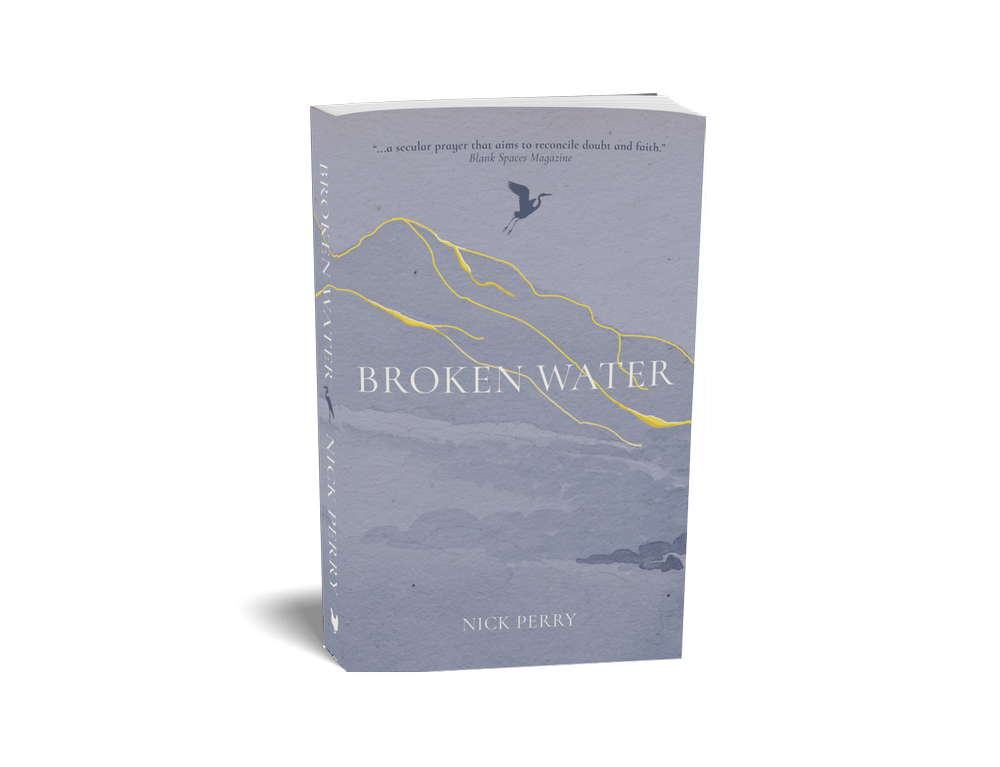

Written by Nick Perry
Posted: January 27, 2024
In the world of publishing there are three general paths. Allow me to light them a little.
Let’s begin with self-publishing. In this model you, in all your free time, do all the writing, all the editing, all the proofing, all the formatting, all the designing, all of the marketing, and all the everything else that comes with a book. You can outsource some of this work, of course (though I can’t say I condone outsourcing the writing), but that will be entirely at cost to you. Costs which can vary but pair almost perfect amount of money spent to quality of work. The benefit of this model is you are the authority with a monarch’s control over everything that happens in your world. You also get 100% of the revenue. Now before you run off to do it all yourself, ask yourself how many people do you know that would be willing to fork over the cash to buy your book. Now remember that they’ll only do that once and after they’ve bought it, who else will? Are you willing to be aggressive on social media or do appearances or treat yourself like a one-item business? It can be done; I certainly know of many, many self-published writers who make more money than me in my government-paid job, but it’s no guarantee.
The next route is the traditional publishing method. This is the one you’ve seen in rom-coms where the protagonist woman has just so many deadlines and the only reason she got into that line of work was so that she could see her dream realized of being an author but has had to bury and sideline it underneath all the hopes of other until one day a man, always a man, reminds her of her dreams and then they kiss and she’s published and it’s a great day in New York. These places kind of exist. They exist in the way the Marianna’s Trench exists: it’s there but is so far away and pressurized that it’s probably only going to be seen by the famous. That’s a bitter take but the reality is that these places are swamped, constantly, with manuscripts. So much so that in publishing there is a paradox where it appears there are more writers than readers. For the big publishing houses, expect them to be closed to general submissions or take about a year to respond. They may respond quicker if you have an agent or have been recommended by one of their authors or will only respond to writers that have such accolades. I have none of these, at present, so I won’t speak about how to get an agent, how to maintain one, or what they charge. I can only be consoled by an idea I heard from Umberto Eco that one should not wish to become a general without first having been a private and then a corporal and so on.
On the other side of the same traditional road are the independents. These houses will offer all the same services as a large publisher: they’ll provide all the editing, designing, etc. that your book will need and put it out under their banner as they promote it. As such, they will take a portion (which is substantial) of any sales on the book. This is how they make their money and, as you are getting involved in a business, you must always ask this question of potential partners. Indie publishers are going to have a smaller reach but can be more specific in the kinds of books they publish. There may be ones that focus on your genre or serve writers hailing from your area. As a bonus, many indies require no representation or previous accolades to submit. So if you’re a writer with an unpublished novel and maybe a few short stories to your credit (see: this guy), these places may be perfect for you. They’re small but they’re personal.
The final road looks like the others. It bisects them and claims to offer the best of both. I openly disagree. These places have called themselves hybrid publishers because their original name, the one they deserve, points out what they’re for. Their true name is vanity publishers. Claiming to do all of the work of a traditional publishing house, they will edit, consult, design, and proof your book with you. After that, they’ll let you keep 100% of the royalties from its sales. That sounds amazing! Until you remember the previous question: how do they make their money? Businesses, or should I say leeches, like this make their money by offering deals to as many writers as they can. They know that publishing is frustrating, unrelenting, and discouraging and so they come through to offer the hope of being a traditionally published writer with only a small asterisk next to that title. Within that asterisk contains the exorbitant fees they require, up front or with a payment plan, to put the book out there. They will cost more than freelance but will argue it’s for quality assurance. Staffed by freelancers, the mileage experienced by authors in this kind of publishing varies as much as a heart monitor in an earthquake. And once they’re done with you, they’re done. They have no obligation to promote, feature, or do any of the work to sell the book after publication. Instead, you’re left with a bill of many thousands of dollars that you believe you can make back, 25 dollars at a time. Listen, if a book has sold thousands of dollars worth, it’s one that makes the news. Yours, and mine, will not do those figures but a vanity press will never tell you so. They don’t want to crush the dreams they supply.
In short, publishing is a long, curvy, spiky, poorly-lit road that leads from your mind to the hands of consumers. I know this article appears bleak but potential writers have to know what’s out there and what they’re willing to sacrifice to a system in which they want to participate. All I ask of future writers is that they understand how long these processes take and figure out before they start pitching what kind of book they have and who would be best for it. It can be done, but not easily. Kind of like writing a book.
Nick Perry is a classic combination of schoolteacher and writer. His debut novel, Broken Water, is available through Chicken House Press. Hailing from Port Moody, B.C. he lives his life as if he's already on television.
Check out his new book, Broken Water, available at Chicken House Press. Pre-order now for the February release!

Growing up during the New Atheist movement, Declan Murphy never quite believed in the existence of a higher power. But when life throws him a series of challenges, his lack of an axis mundi has him latching on to the one vision that feels right: becoming a Catholic priest.
This emotional and thought-provoking story follows Declan as he navigates the conflicts between his personal beliefs and his family’s expectations.
Will he be able to reconcile this contradiction? And at what cost?
As Declan delves deeper into his journey, he will discover truths that will test his faith and his relationships. Will his quest to become a priest ultimately bring him closer to or farther from the truth?
And what of the biggest question of all?
Why would an atheist ever want to become a priest?

From Pen to Published—The Process of Writing a Book
Navigating the World of Self-Publishing
Setting Up an Author Website
Budgeting for Book Publication—Make a Plan
10 Tips for New Self Publishers
Preparing For Your Book Launch
Tigerpetal Press is a small book press dedicated to publishing local authors and poets.